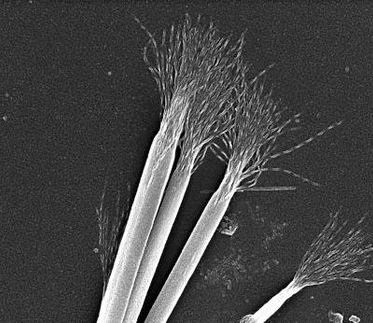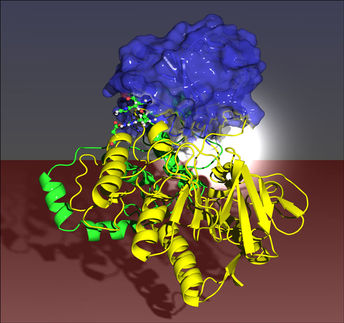A nemesis for oil spills
Proven Tel Aviv University bacterial technology can clean up the oil that BP's cleaning crew leaves behind
It's taken millions of dollars to cap it, and it could take billions more to clean it up. BP's oil spill in the Gulf of Mexico is acknowledged the environmental catastrophe of the century. But Tel Aviv University has a solution that may help "bioremediate" the remaining problems.
Prof. Eugene Rosenberg and Prof. Eliora Ron of Tel Aviv University's Department of Molecular Microbiology and Biotechnology are using naturally occurring oil-munching bacteria, grown at the TAU lab, to clean the hard-to-reach oil pockets that occur when oil mixes with sand and organic matter on beaches and forms a thin layer on the Gulf's precious waterways.
"It's worked to clean up an oil spill on the coast of Haifa, Israel, so we've already got good evidence it could work in Florida too," says Prof. Ron. Details of their decades of research appear in The Handbook of Hydrocarbon and Lipid Microbiology, published this year by Springer Verlag.
Using nature itself to fight contamination
The researchers identified a naturally occurring variety of sea-borne bacteria that digests oil. By studying the bacteria's genetic background, developing methods of growing the bacteria, and increasing their capacity to ingest the oil, the scientists have developed a solution that could clean up the residual oil that can't be removed by mechanical means.
Prof. Ron says that sucking up surface oil pools and containing the oil are important and necessary first-step actions. But her solution addresses the smaller amounts of oil left behind ― that which isn't easily removed from sand and water. It is this small percentage of oil that sits under rocks and forms a thin film on the water's surface. Her bacterial solution can remove this oil, which is necessary to protect the sea's wildlife.
"We see sad pictures of birds covered in oil and people with good intentions cleaning bird wings," says Prof. Ron. "But by the time the oil is on their wings, it's too late. Birds die because oil gets into their lungs."
Going the last mile
"The problem is huge and even with just a little bit in your lungs, oil is bad. Even when cleanup crews reduce the amount of oil at sea, there will probably be enough left behind to kill birds and wildlife." At this level of oil removal, the researcher says, the only solution is bioremediation ― using nature itself to do the final cleanup.
Featured in Time magazine in the 1970s, the bacterial bioremediation solution developed at Tel Aviv University has been applied to clean out the bilges of oil tankers at sea and is used around the world.
Most read news
Organizations
Other news from the department science

Get the chemical industry in your inbox
By submitting this form you agree that LUMITOS AG will send you the newsletter(s) selected above by email. Your data will not be passed on to third parties. Your data will be stored and processed in accordance with our data protection regulations. LUMITOS may contact you by email for the purpose of advertising or market and opinion surveys. You can revoke your consent at any time without giving reasons to LUMITOS AG, Ernst-Augustin-Str. 2, 12489 Berlin, Germany or by e-mail at revoke@lumitos.com with effect for the future. In addition, each email contains a link to unsubscribe from the corresponding newsletter.


























































